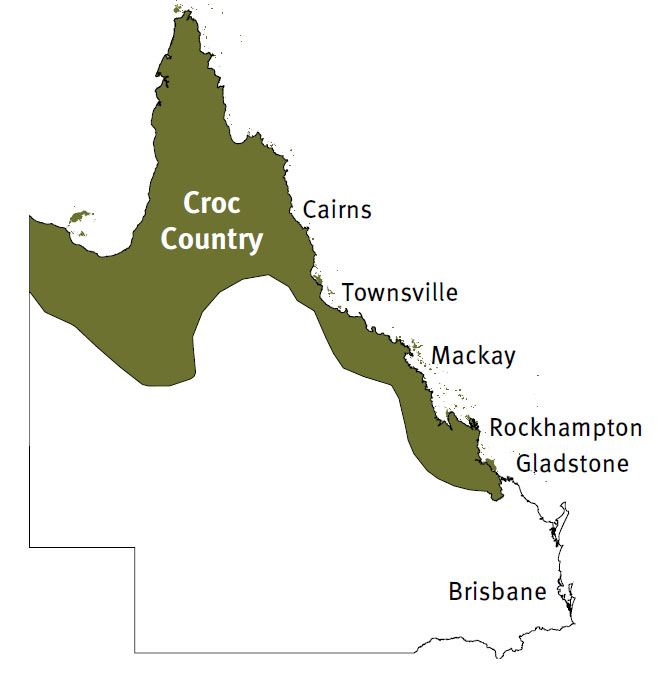I’ve lived and worked with crocodiles in Queensland for over 20 years. They make tropical Queensland special but they can be dangerous. When you're in croc country be croc wise and stay safe, don't risk your life. Remember just because you can't see them doesn't mean they're not there.
Treat all waterways as croc country. Crocs can be found in any waterway in the north.
Never swim where crocs live and stay away from mud slides on the bank.
Take notice of warning signs and stay well back from the water's edge.
Seeing a crocodile in the wild is an amazing experience but remember stay safe, be croc wise in croc country.





